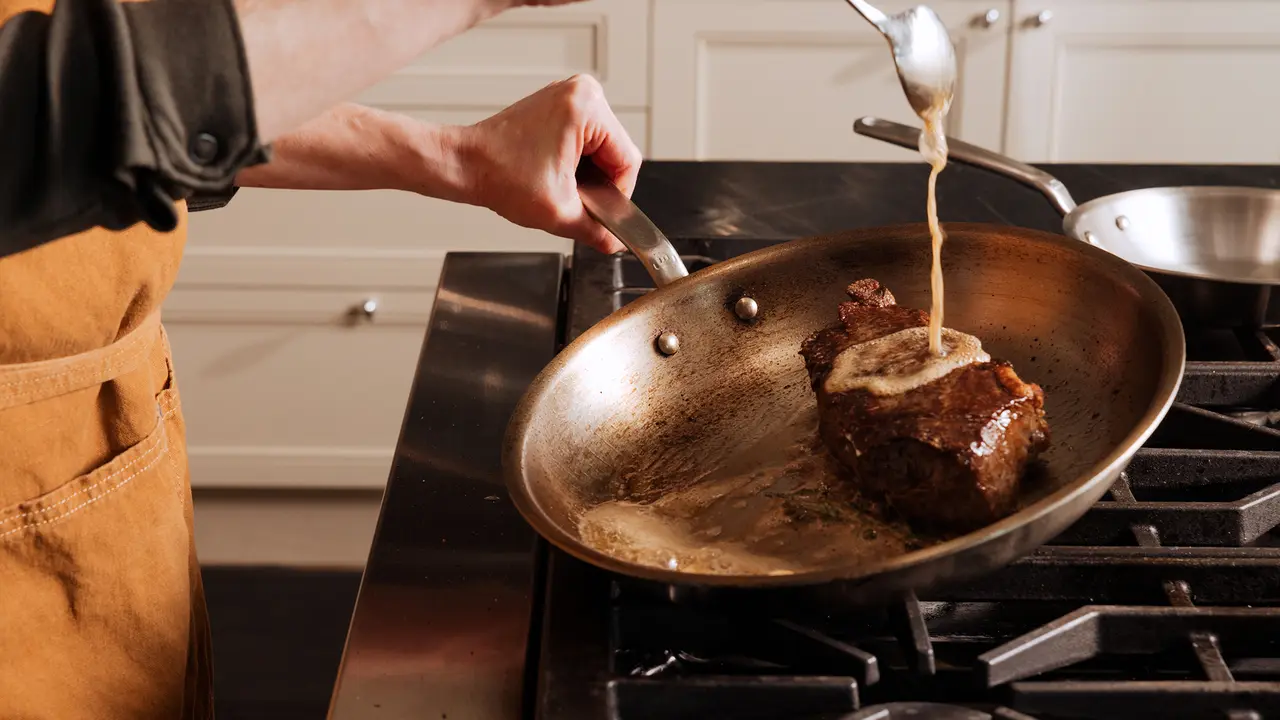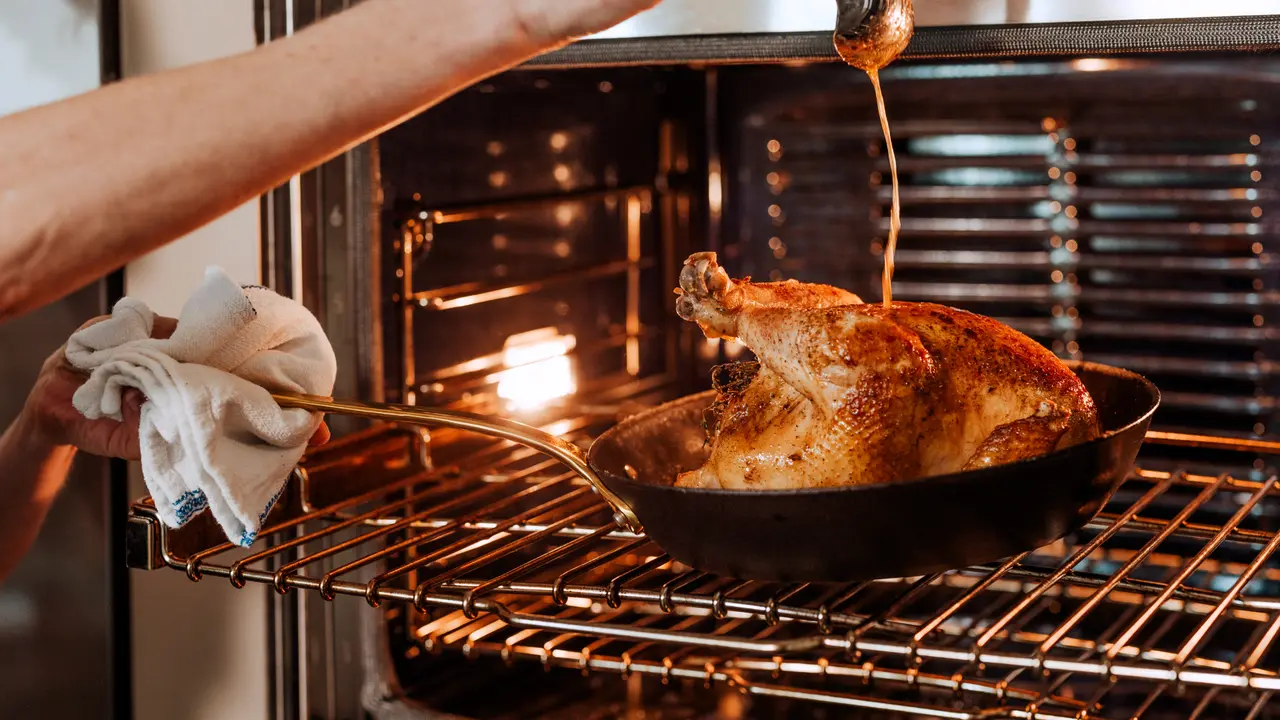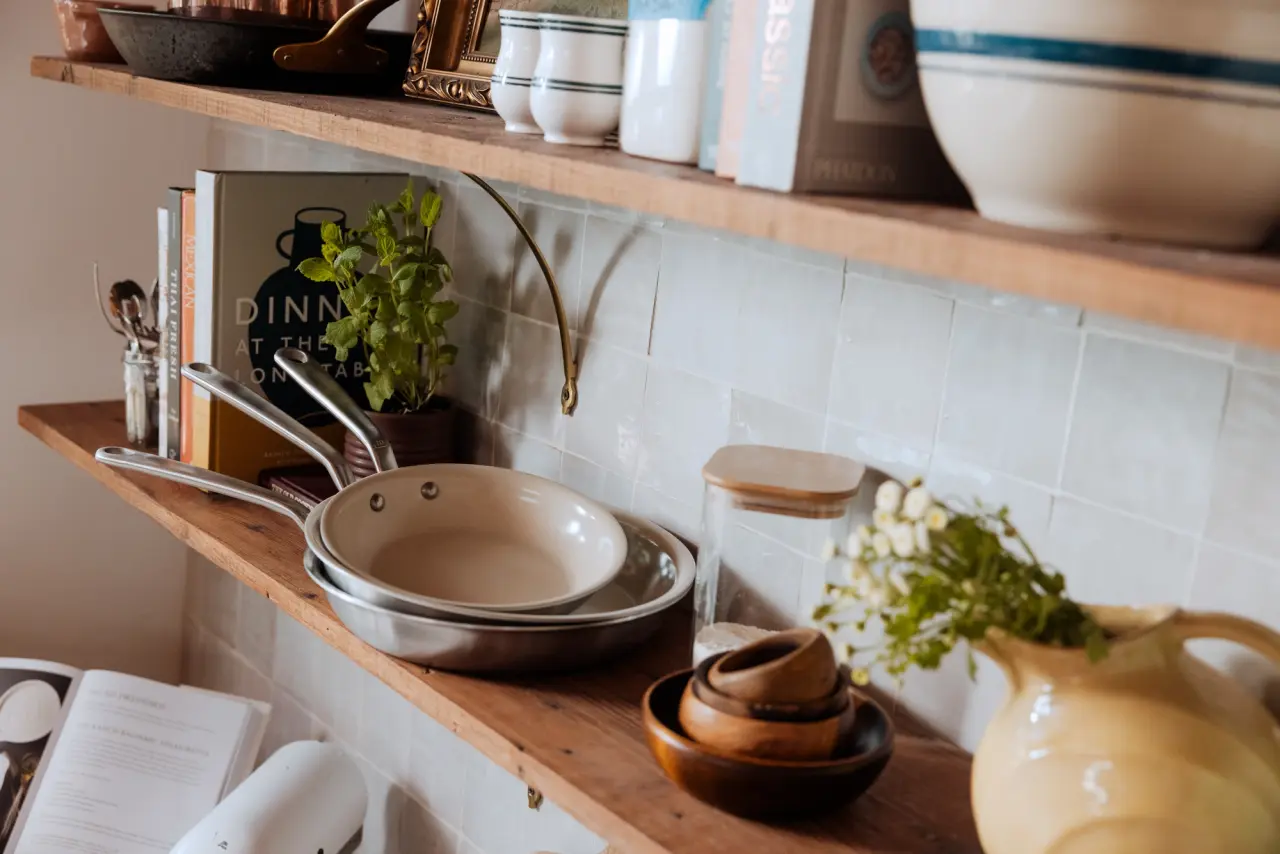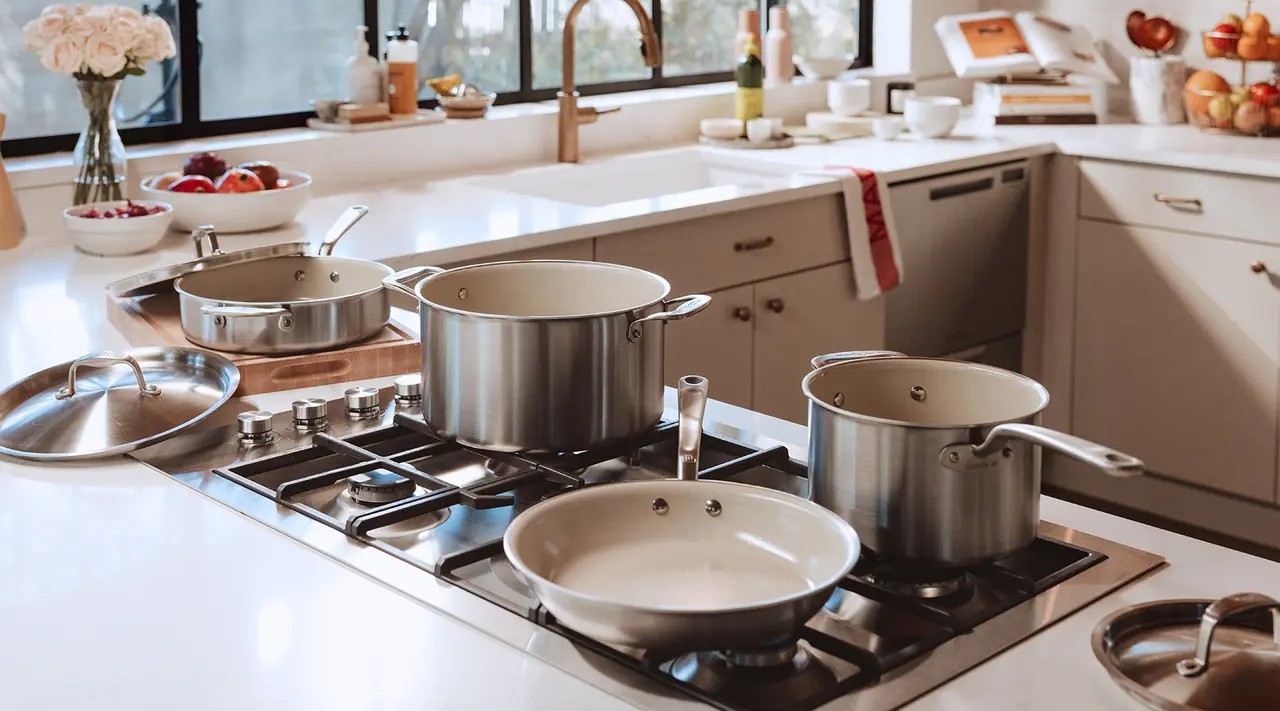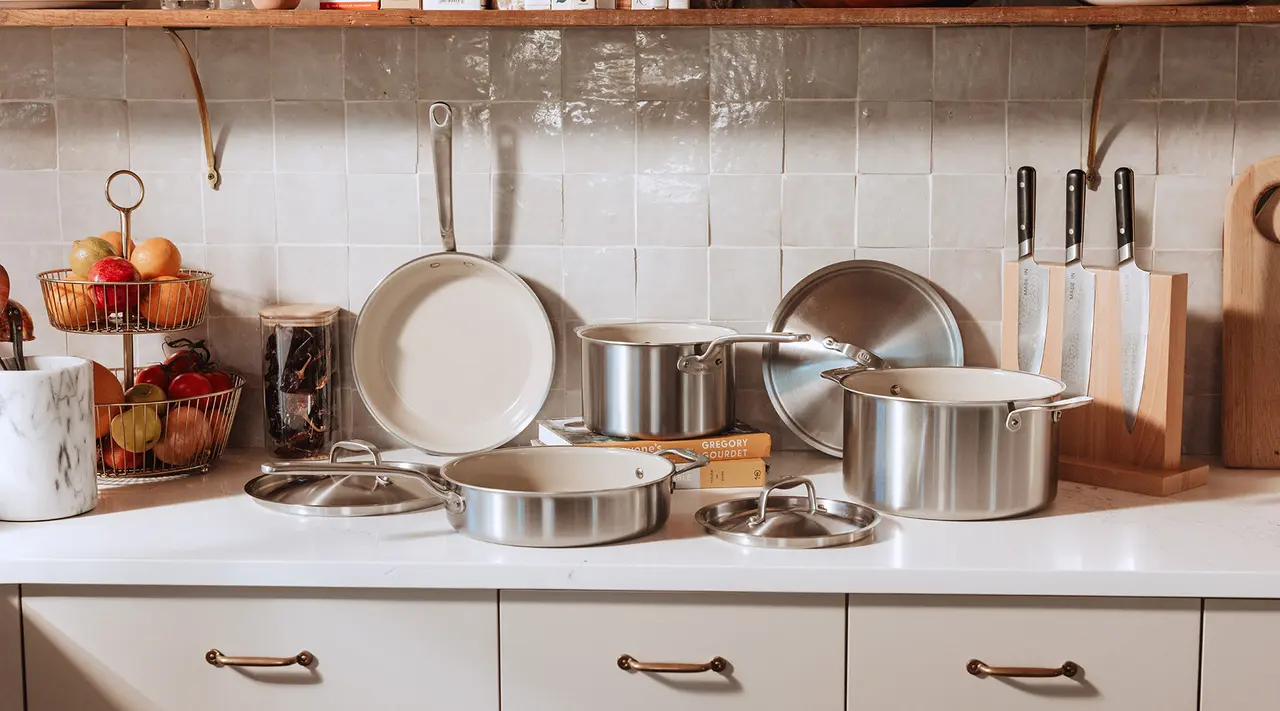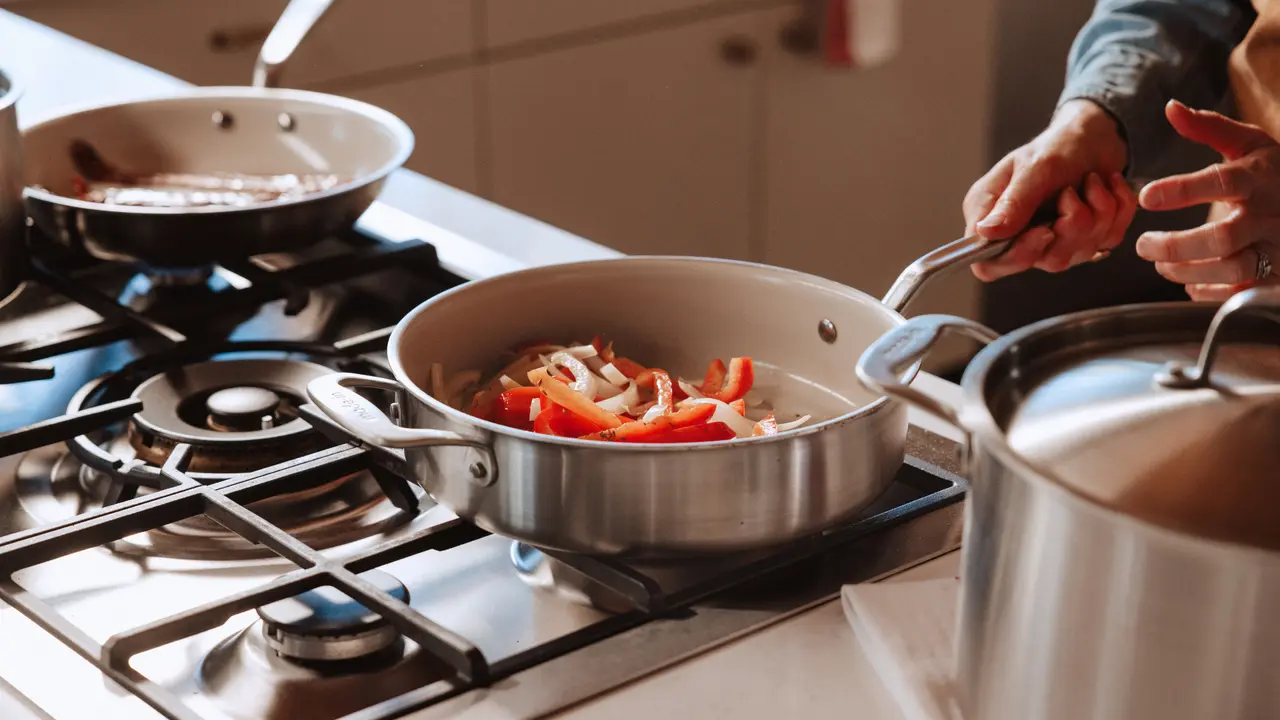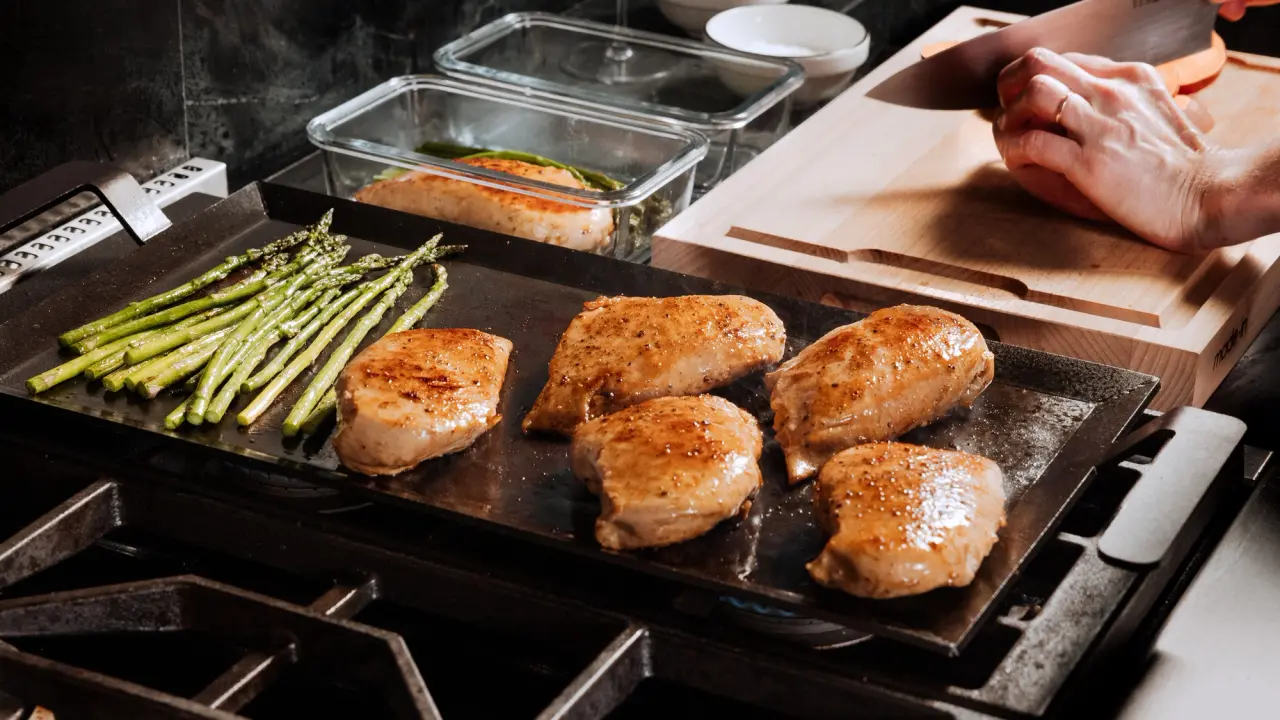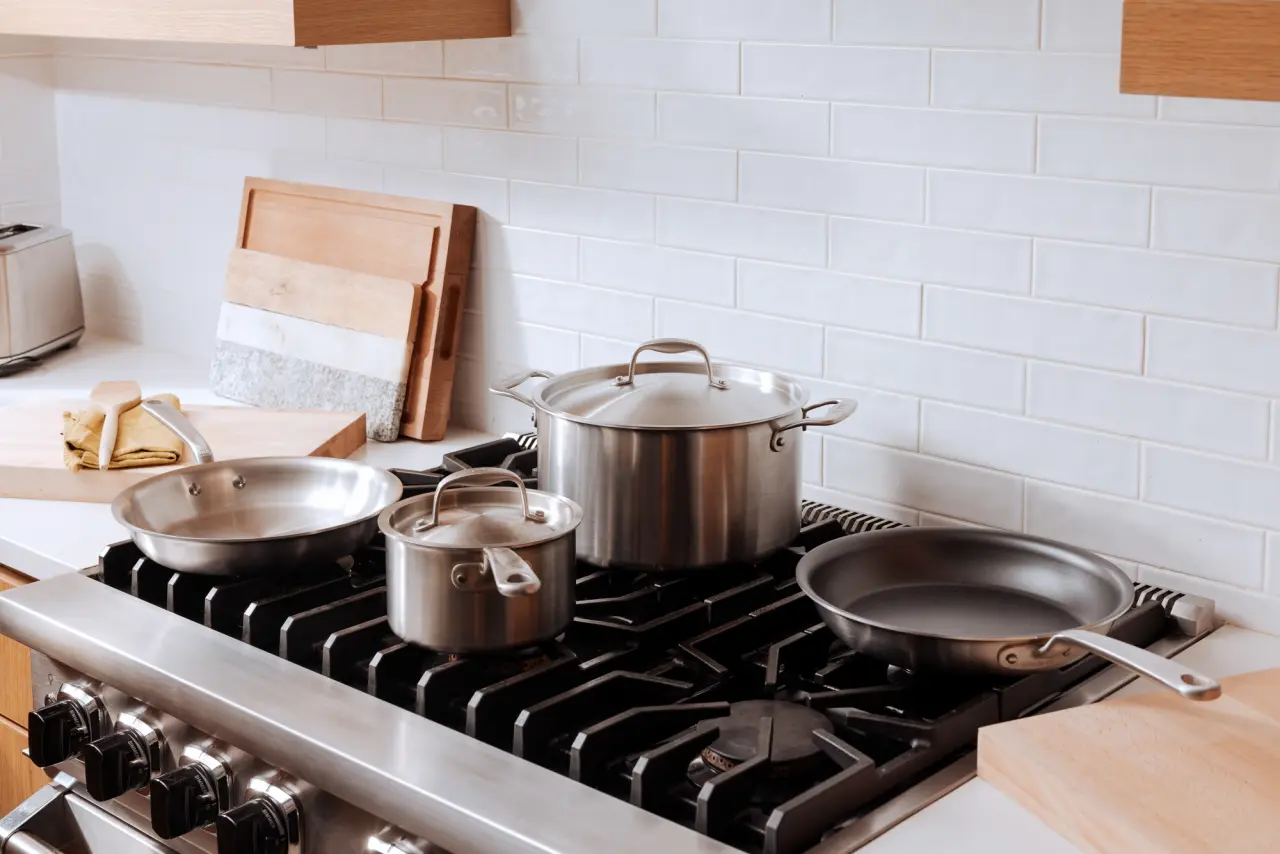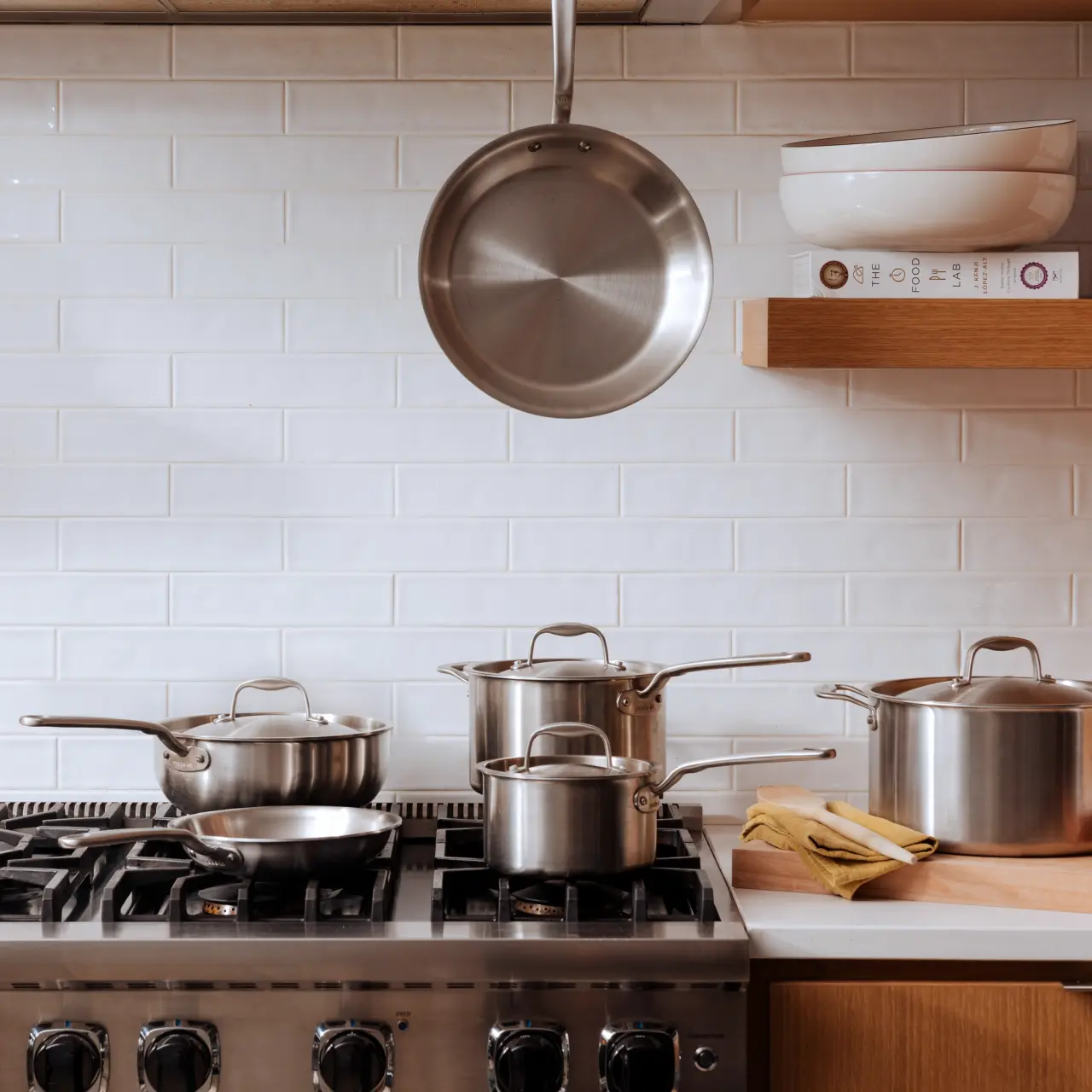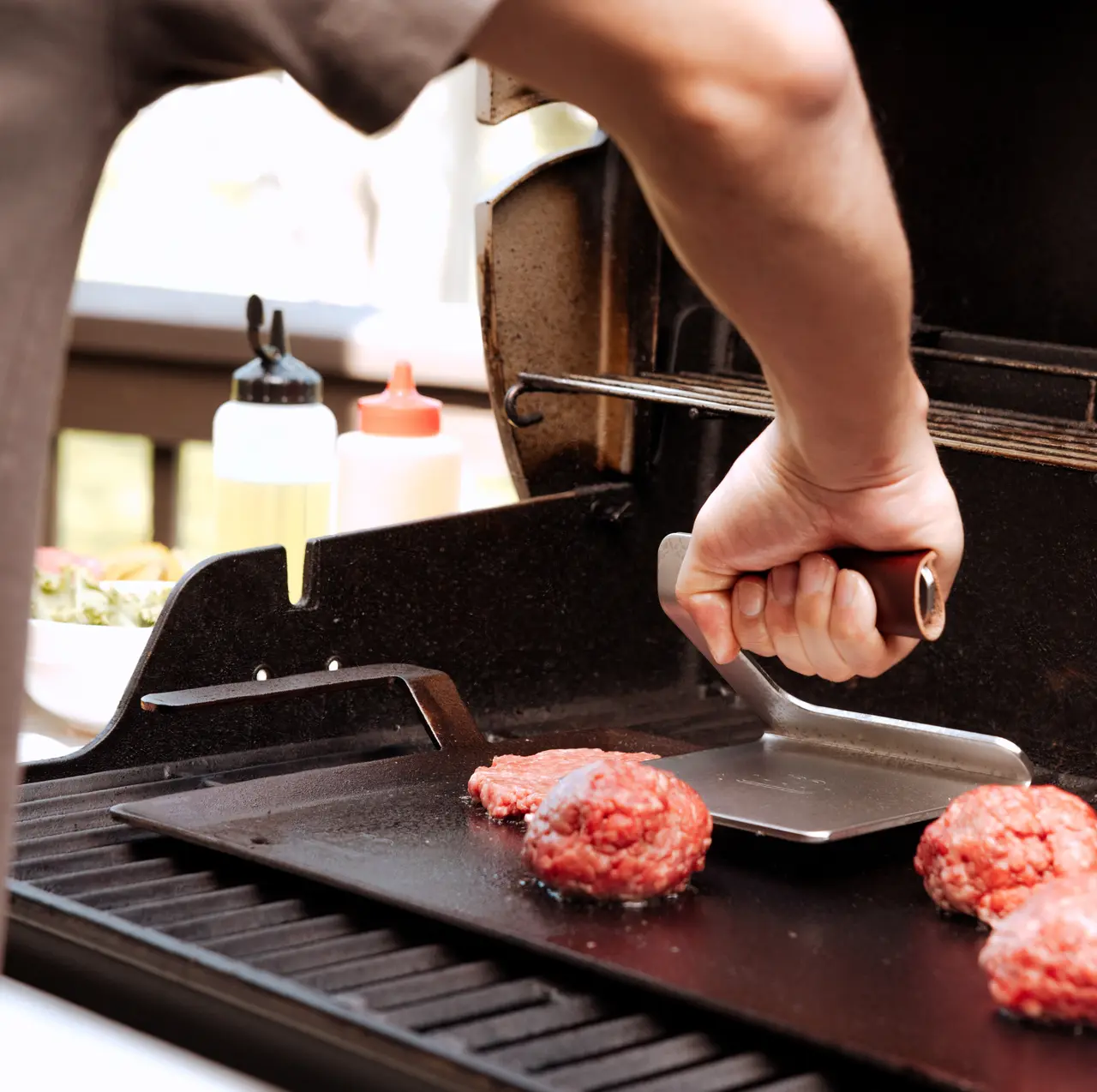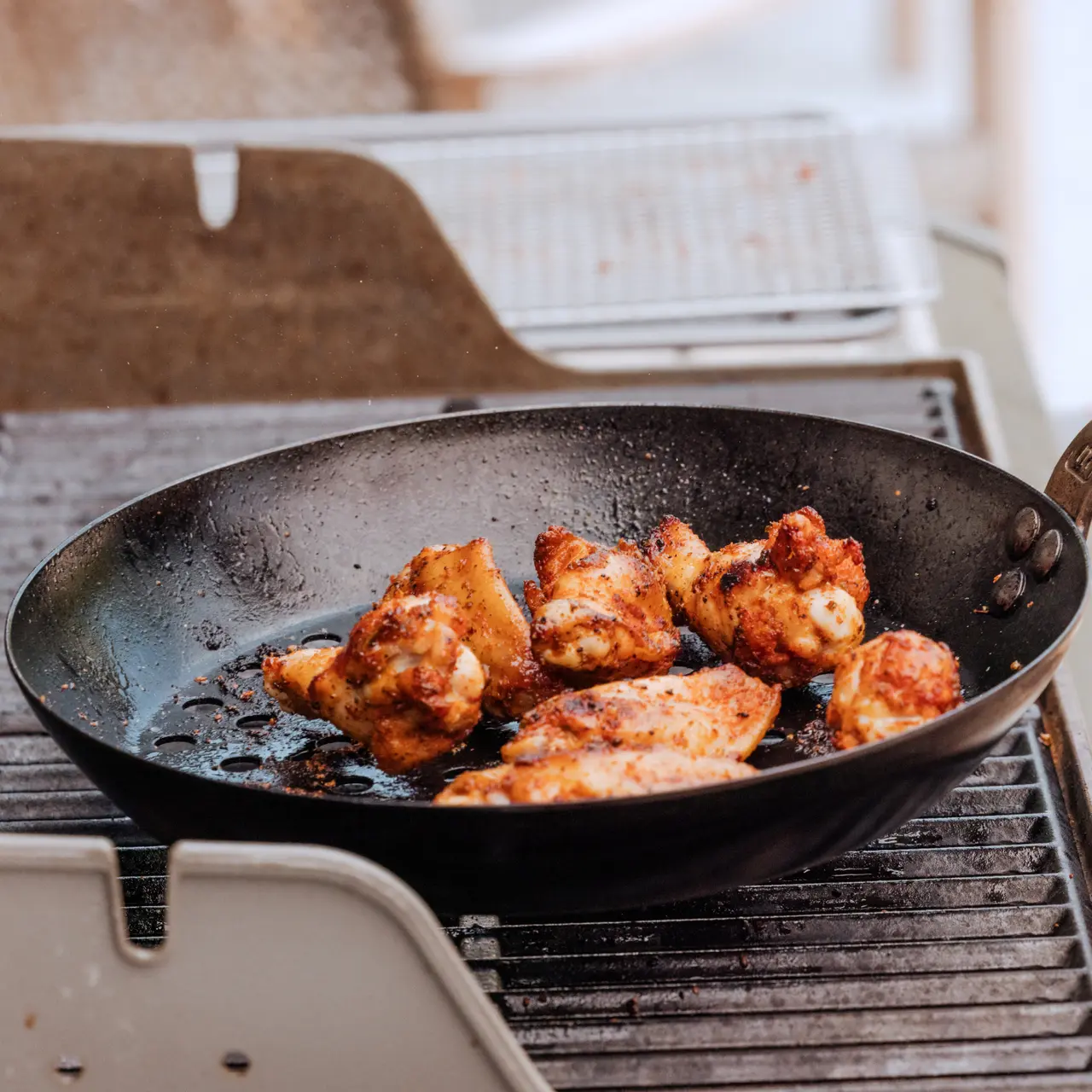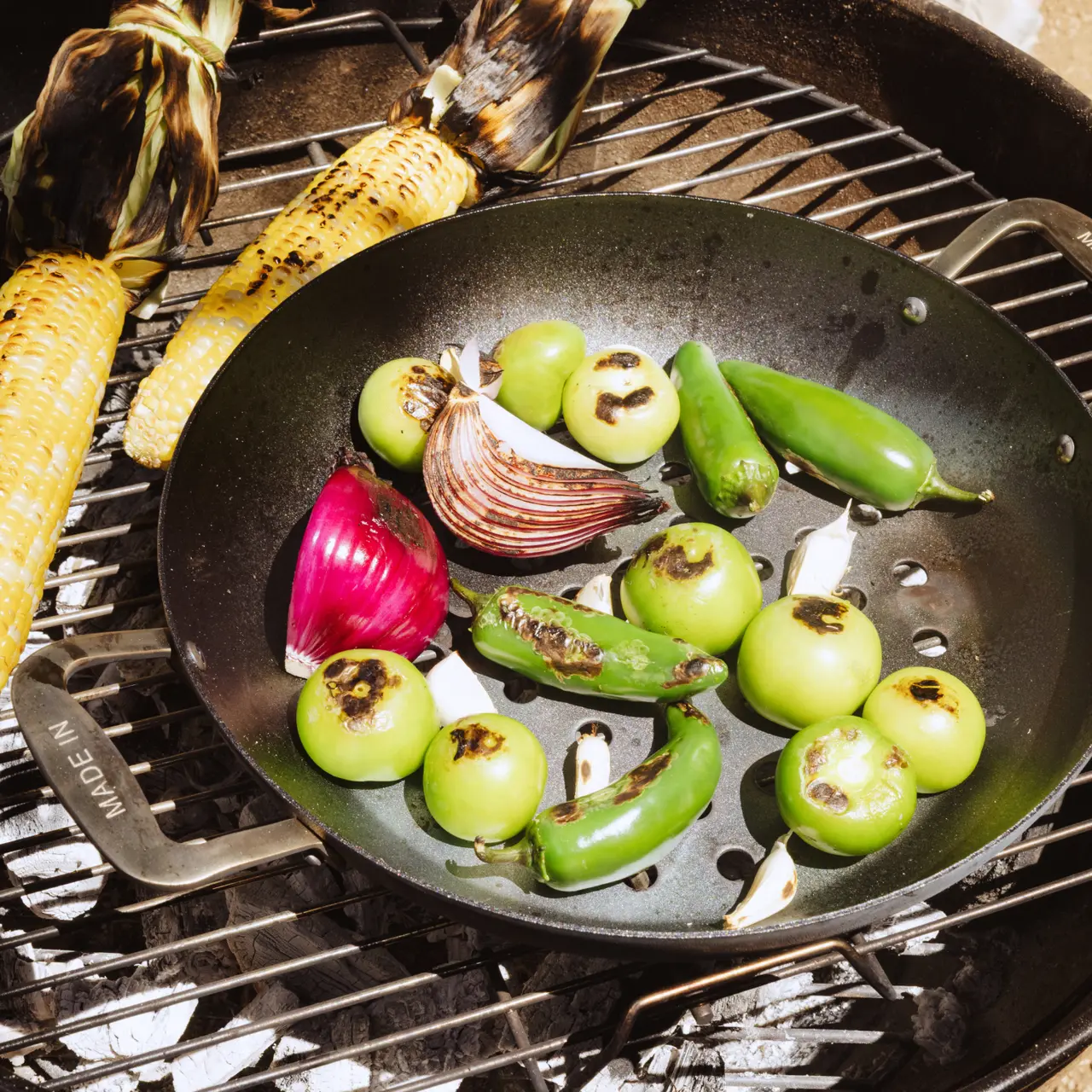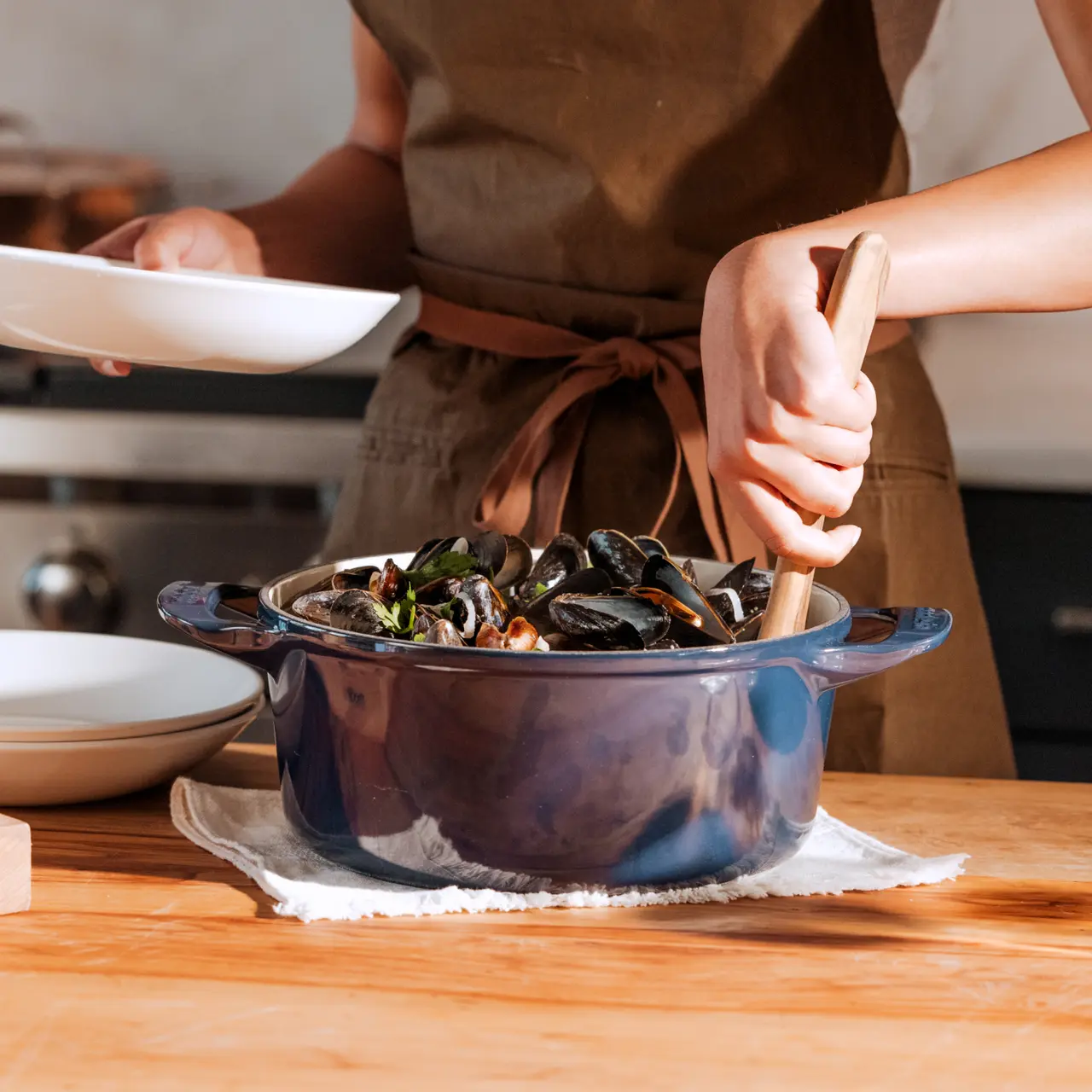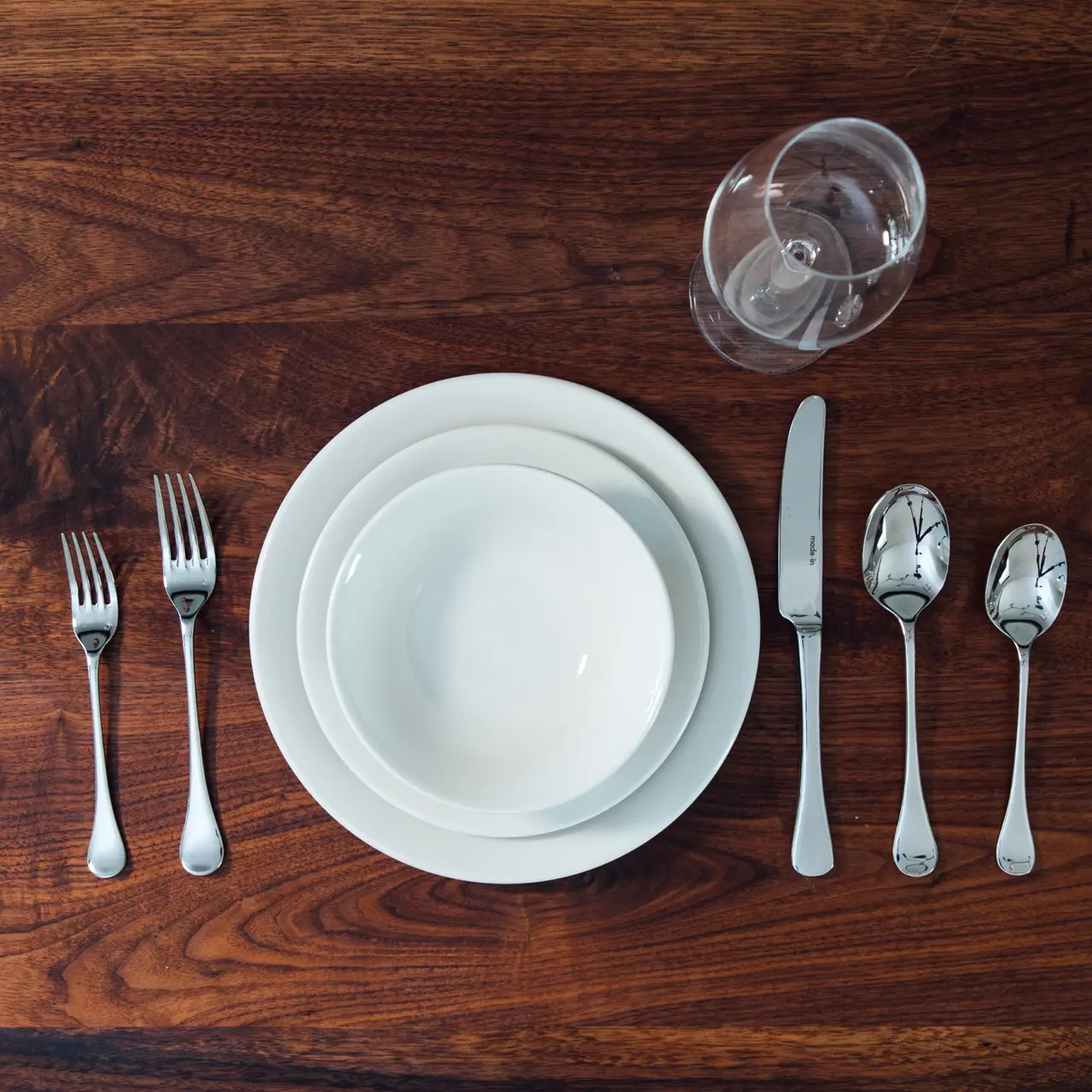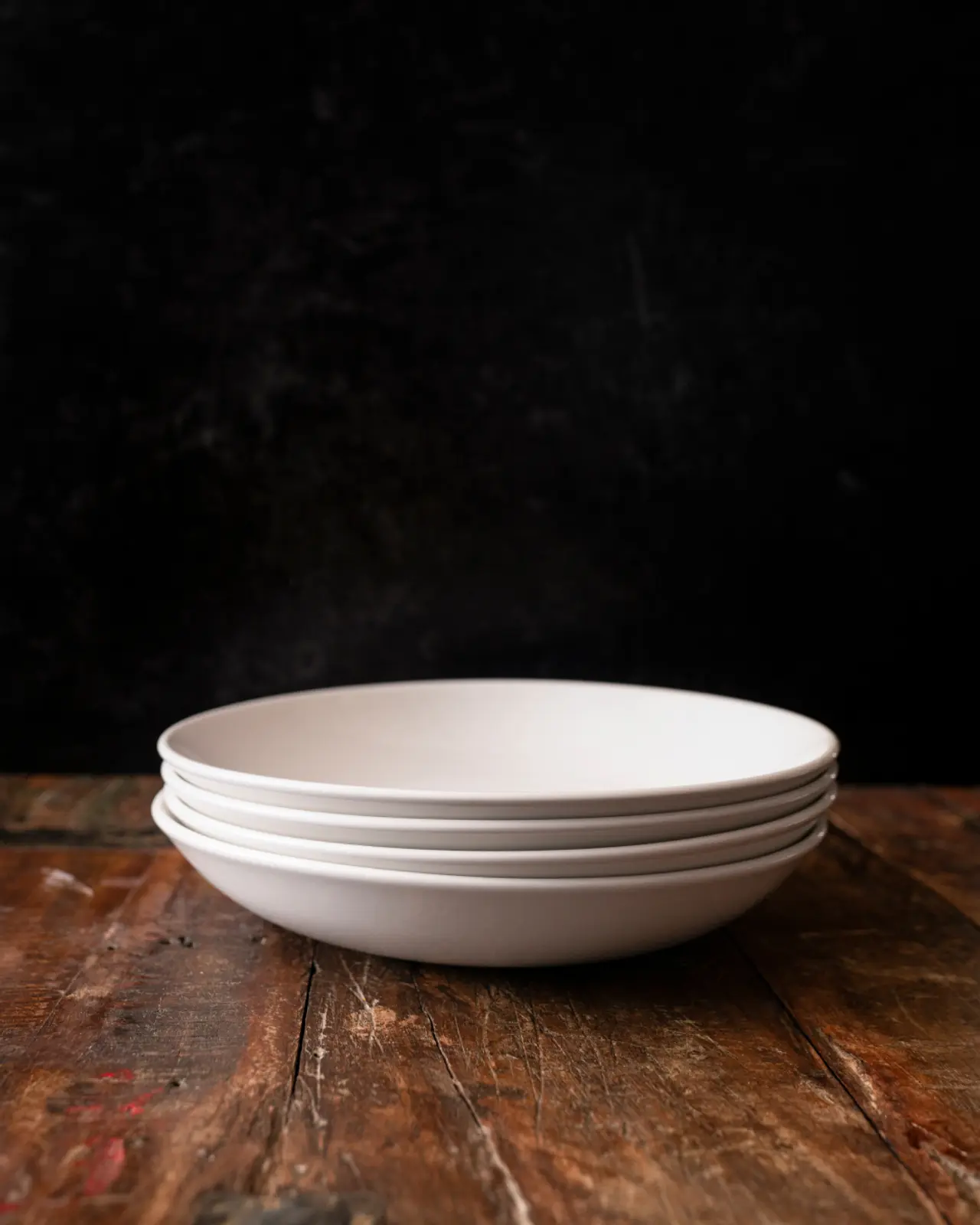There are a whole lot of gimmicks in the cookware world. You’ve probably seen the ads for cookware that promise cutting-edge heating technology, unmatched durability, and easy cleanup all in one (often quite pricey) pot or pan. Thankfully, stainless steel is not on that list. Durable and versatile enough to use in a restaurant kitchen, yet user-friendly enough for the average home cook, stainless steel is worth every penny in our book.
To keep things balanced, however (and to make sure you know exactly what you’re buying), we wanted to list both the many pros of stainless, and some of the considerations.
Understanding Stainless Steel Cookware
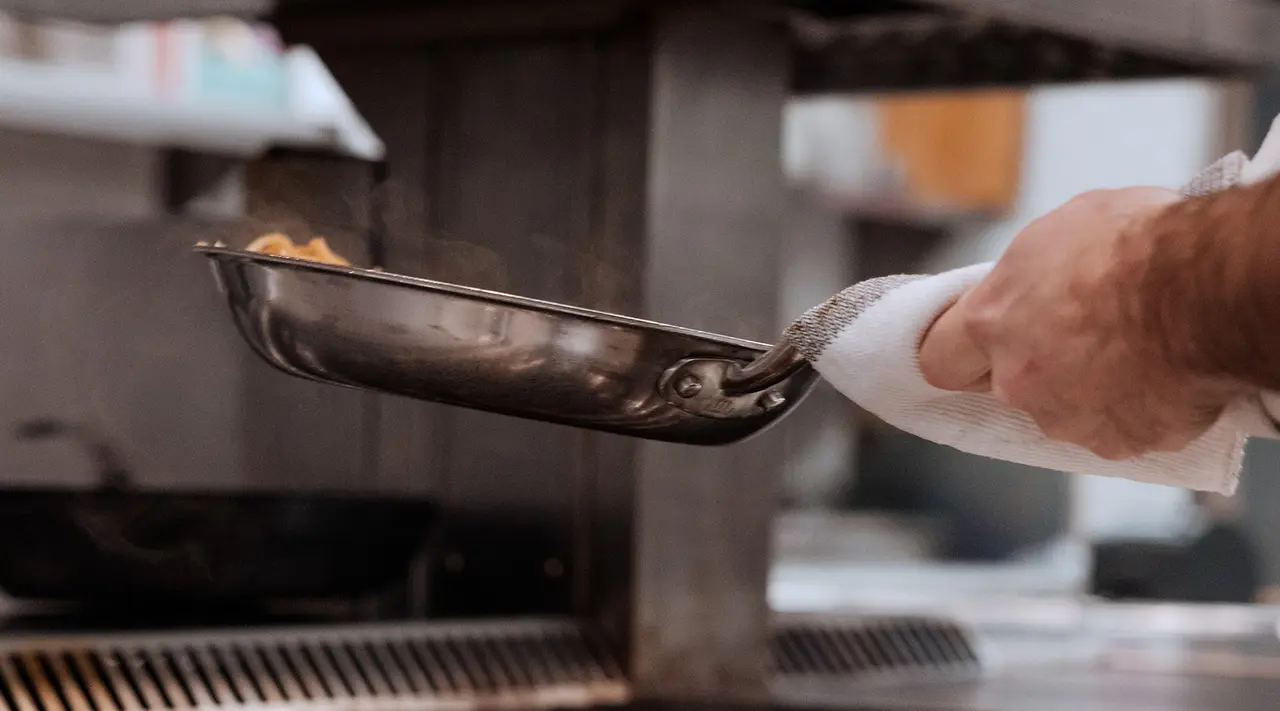
If you’re still relatively new to the club when it comes to stainless steel cookware (and if so, welcome!), there are a couple of facts you might find useful—or at least interesting—to know before you buy your first pot or pan.
- Stainless steel is rarely—if ever—used on its own to make cookware. While the top layer (and preferably the bottom layer) should always be pure stainless steel to ensure a rust- and scratch-resistant, non-reactive cooking surface, the interior layers are usually made from metals like aluminum and copper for optimal conductivity and heat distribution.
- Stainless steel is not non stick—unless it’s coated with a non stick material like non stick or ceramic. You can, however, keep food from sticking just as easily by properly preheating your pan.
- Despite the name, stainless steel isn’t 100% immune to rust—though it’s still less prone to rusting than most metals (even less so with proper care).
Pros of Stainless Steel Cookware
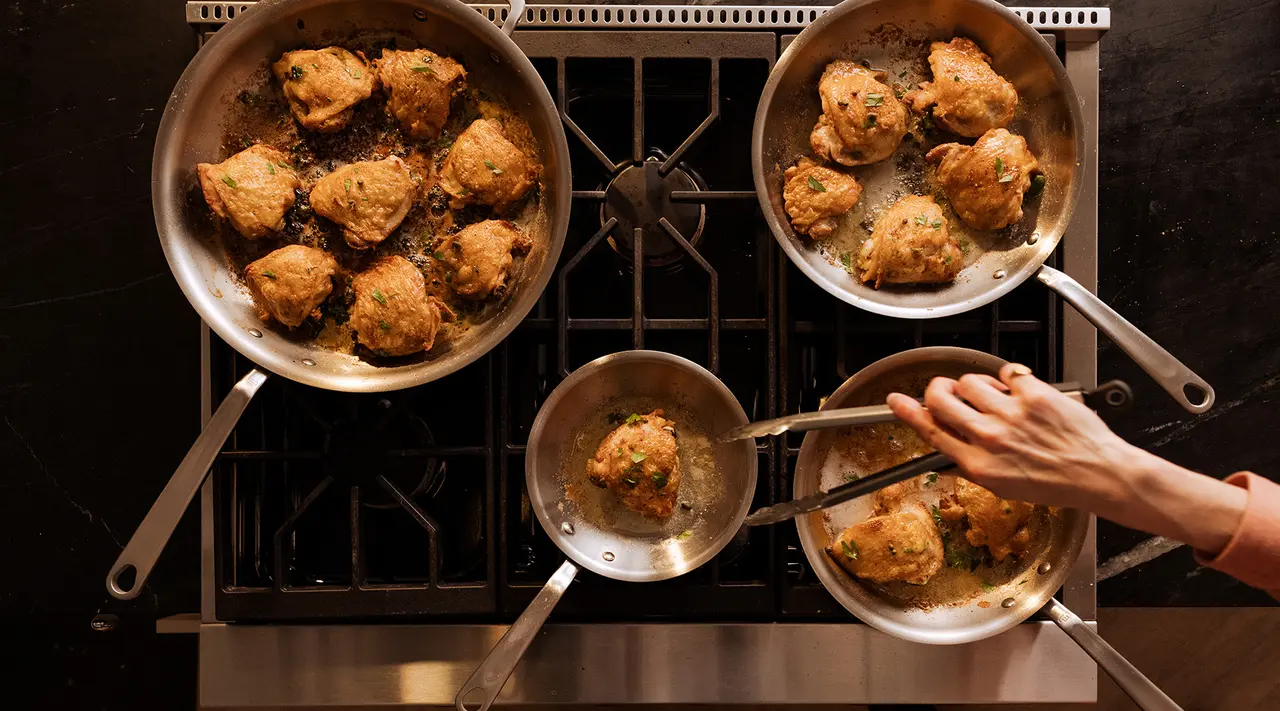
Below, you’ll find some of the (many) reasons we love this shiny, long-lasting material.
Durability
- High percentages of chromium and nickel—typically found in 18/10 stainless steel—help to prevent rust and corrosion.
- More resistant to scratching than materials like non stick and ceramic.
- Suitable for heavy-duty use in both home kitchens and professional environments.
Non-Reactive Surface
- Safe for cooking acidic foods like tomatoes or citrus without affecting flavor.
- Less risk of acidic foods stripping or damaging the pan.
Heat Retention and Distribution
- Multi-ply stainless steel provides even heat distribution and retention.
- Works well for searing, browning, and developing fond for deglazing.
Low Maintenance
- Does not require seasoning or reseasoning.
- Easy to clean and resistant to staining, so you won’t spend precious time scrubbing a burnt or discolored pan.
Versatility
Because of stainless steel’s rugged, warp-resistant construction and high heat tolerance, it can be used in a range of cooking environments, from oven to stovetop to grill (and even on induction cooktops). It also works well for cooking with metal utensils, since there’s no coating, finish, or seasoning to worry about damaging—though obviously, don’t go gouging your metal tongs into the surface.
Aesthetic Appeal
We won’t deny it: stainless steel is probably the nicest-looking cookware material out there (next to copper, of course). It also complements nearly any kitchen aesthetic, from an industrial restaurant kitchen to a more contemporary space.
Considerations of Stainless Steel Cookware
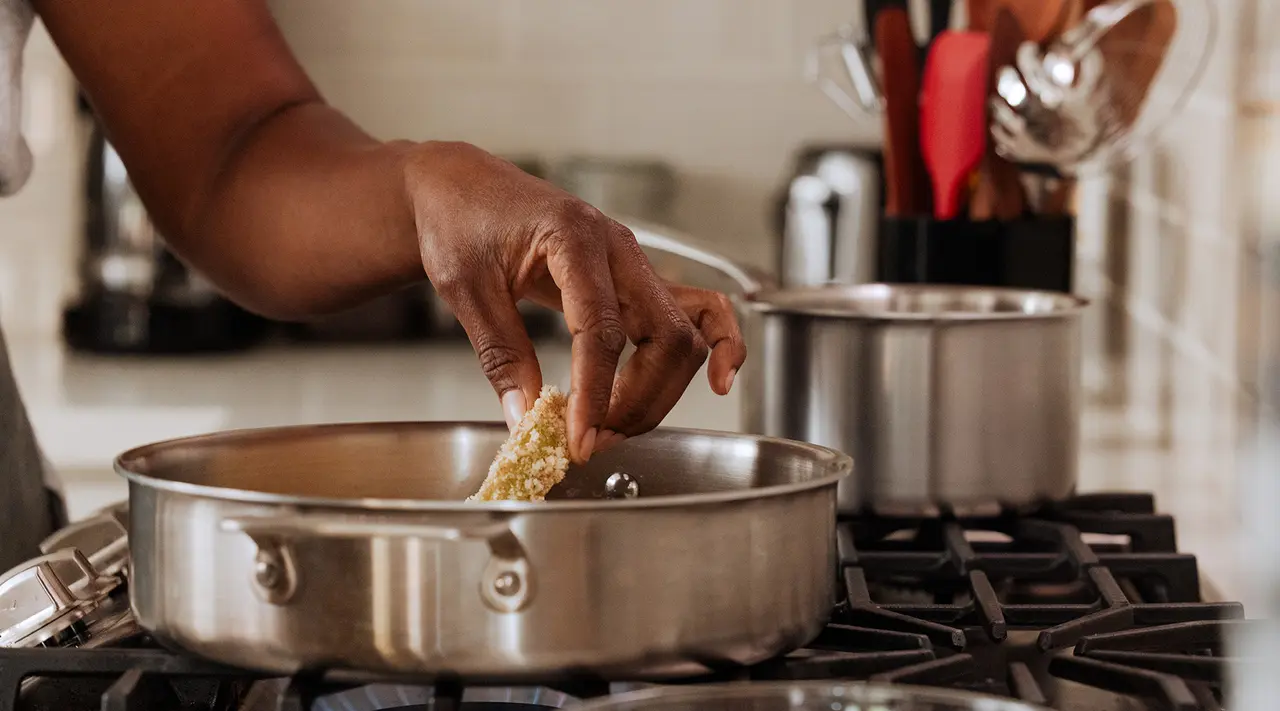
Before purchasing your first piece of stainless steel cookware, make sure to keep these (relatively minor) considerations in mind.
Price
One of the harder pills to swallow when it comes to stainless steel is the price: while you can certainly find budget-friendly stainless steel pots and pans, prices tend to start a bit higher than options like non stick and carbon steel. For premium, fully-clad stainless steel, you can expect to pay upwards of a hundred dollars for a small frying pan, and closer to two hundred for a large stockpot—even more if it contains a copper core.
That said, we feel the price per use more than justifies the cost, especially when considering how the price of replacing a cheaper pan every couple of years adds up.
Food Sticking
Stainless steel sticks more easily than other cookware options, and that’s simply the nature of the beast. While you can reduce the amount of sticking by properly preheating your pan, as well as by using enough fat, you’ll never get the exact same results as a non stick or seasoned cast iron pan.
Weight
Stainless clad is far from the heaviest cookware material on the market. With that said, it’s still heavier than options like ceramic and non stick—particularly 5-ply stainless clad, which tends to weigh more than 3-ply due to the additional layers of metal. While it’s still considerably lighter than cast iron, this is still something to consider if you’re looking for a very lightweight option.
Poor Heat Conductivity (Without Core Layers)
One of the reasons stainless steel is often clad, or layered, with other materials is that—while incredibly durable, rust-resistant, and non-reactive— it’s not actually a great conductor of heat by itself. Pretty much all pans marketed as stainless steel contain additional layers (or “ply”) of metals like aluminum, aluminum alloy, and copper, which circulate heat more effectively.
Learning Curve
While generally quite user-friendly overall, stainless steel does pose a slight learning curve to beginner cooks. Learning how to manage the heat (we recommend starting with the burner on low or medium) as well as preheat the pan before adding food can help you avoid burnt, sticky messes—though honestly, carbonized onions or eggs that stuck more to the pan than your plate are a rite of passage for cooks using stainless steel.
Who Should Buy Stainless Steel Cookware?

Virtually anyone can reap the benefits of stainless steel. From veteran home cooks to folks just learning the basics, stainless steel—particularly high-quality stainless clad—sets you up for success, helping you feel more competent (and confident) around the stove. And while you don’t have to drain your bank account to get a decent piece of stainless steel cookware, we do recommend looking at these pieces as an investment: not only will your food taste better, but you’ll also be able to go much longer without replacing them.
Ready to Shop?
No cookware material is perfect: when it comes to rugged, low-maintenance, versatile stainless steel, however, the positives far outweigh the negatives in our books. And whether you go for a single 8” frying pan or a full 10-piece cookware set, we think every piece of our 5-ply Stainless Clad cookware speaks for itself.



